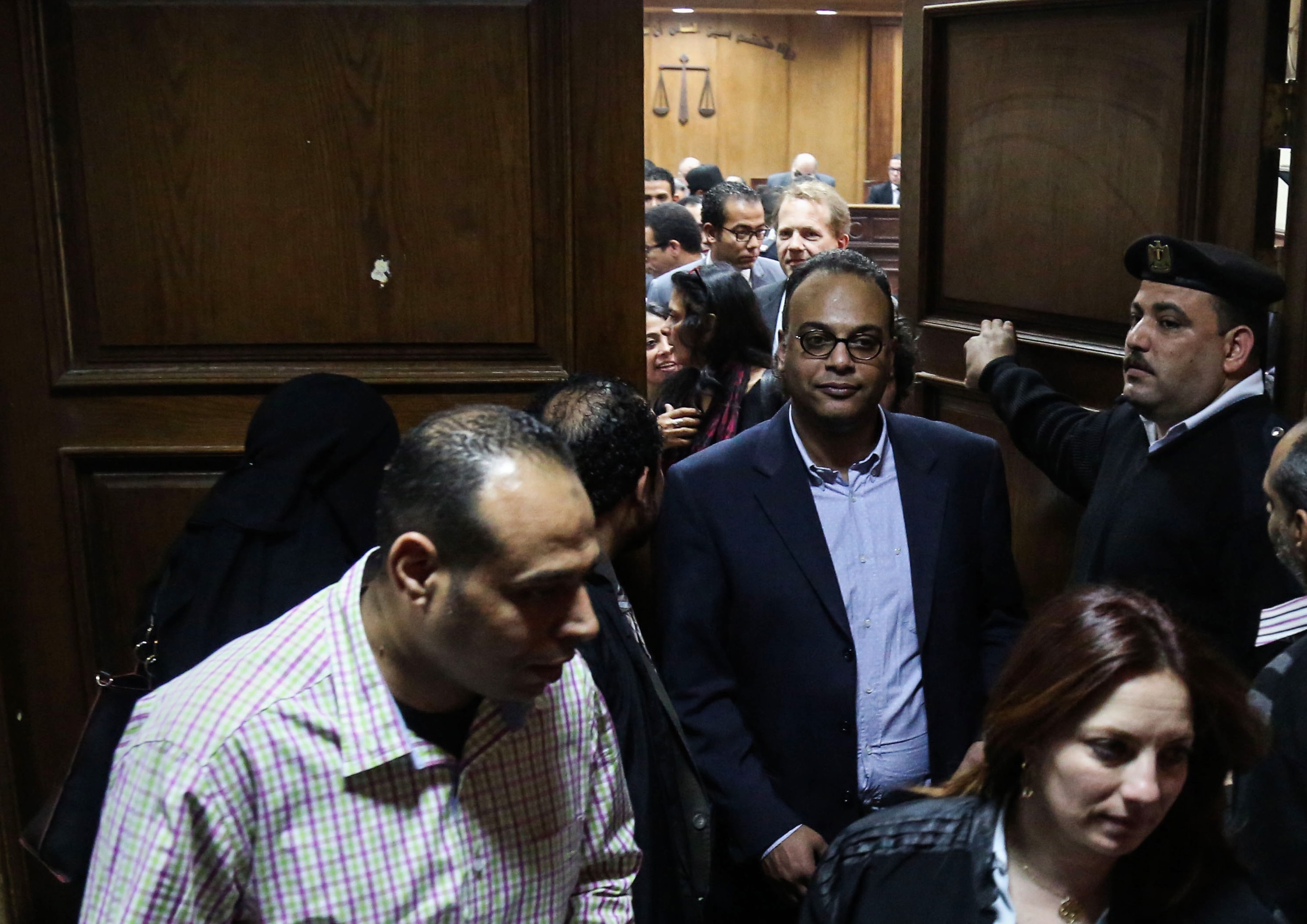Two IFEX member organisations, including their directors, Gamal Eid and Bahey el din Hassan, are targeted through a Mubarak-era law, as Egypt continues its relentless efforts to dismantle civil society.
As the global network of organisations defending and promoting the right to freedom of expression, IFEX unequivocally condemns the Egyptian government’s decision to approve the investigative judge’s asset freeze request against prominent human rights organisations and defenders.
The 17 September ruling in case no. 173/2011, known as the “foreign funding case”, has resulted in an asset freeze against three civil society organisations and their directors, as well as two prominent individual human rights defenders. This includes IFEX member the Cairo Institute for Human Rights Studies (CIHRS) as well as its director Bahey el din Hassan, Gamal Eid, director of IFEX member The Arabic Network for Human Rights Information (ANHRI), the Hisham Mubarak Law Center (HMLC) and its director Mostafa El Hassan, the Center for the Right to Education and its executive director Abdel Hafiz Tayel, and Hossam Bahgat, founder of the Egyptian Initiative for Personal Rights.
The re-activation of case 173 and ongoing use of the Mubarak era Law 84 are part of a larger crackdown targeting not only human rights defenders, but also the media, trade unions, and peaceful protesters. Other measures of the case have included travel bans against 12 NGO members, including Eid and Bahgat, asset freeze requests against 13 NGO members, interrogation of 5 NGO heads in connection with the case, and the interrogation of 17 human rights defenders in connection with their human rights work. The ruling on 17 September in favor of the investigative judge’s asset freeze request indicates that the five-year-old investigation into the funding and registration of independent human rights groups could soon result in criminal charges.
Under Egyptian law, prosecutors could charge human rights defenders for working without official registration or accepting foreign funding without government authorization. An amendment to the Penal Code passed in September 2014 by President Abdel Fattah al-Sisi provides for a sentence of up to life imprisonment, which equates to 25 years in prison in Egypt, for the latter charge.
We firmly believe that the current push against Egyptian civil society is not only unconstitutional, but also fundamentally misguided. The work of civil society groups contributes to a healthy, vibrant political climate that allows for open and critical debate of important social issues where all Egyptian citizens can be freely heard.
IFEX joins the global call for Egypt to respect its constitutional responsibilities and obligations under international law and allow Egyptian civil society to fulfill its legitimate function of informing society and encouraging debate.
We therefore call on the government of Egypt to:
• Immediately overturn the ruling to approve the investigative judge’s asset freeze request against those named in the case;
• Immediately lift the travel ban against Gamal Eid and Hossam Bahgat and cease all other measures under the foreign funding case, including spurious tax investigations;
• Conduct an open and inclusive review of Law 84 and other Egyptian laws on nonprofit organisations, amending their provisions in line with the rights and freedoms guaranteed by the 2014 constitution;
• Review the constitutionality of the punitive penal code amendment of 2014 that has made accepting foreign funding without government authorization a life imprisonment offense; and
• Cease all forms of judicial harassment perpetrated against human rights defenders and members of civil society.




